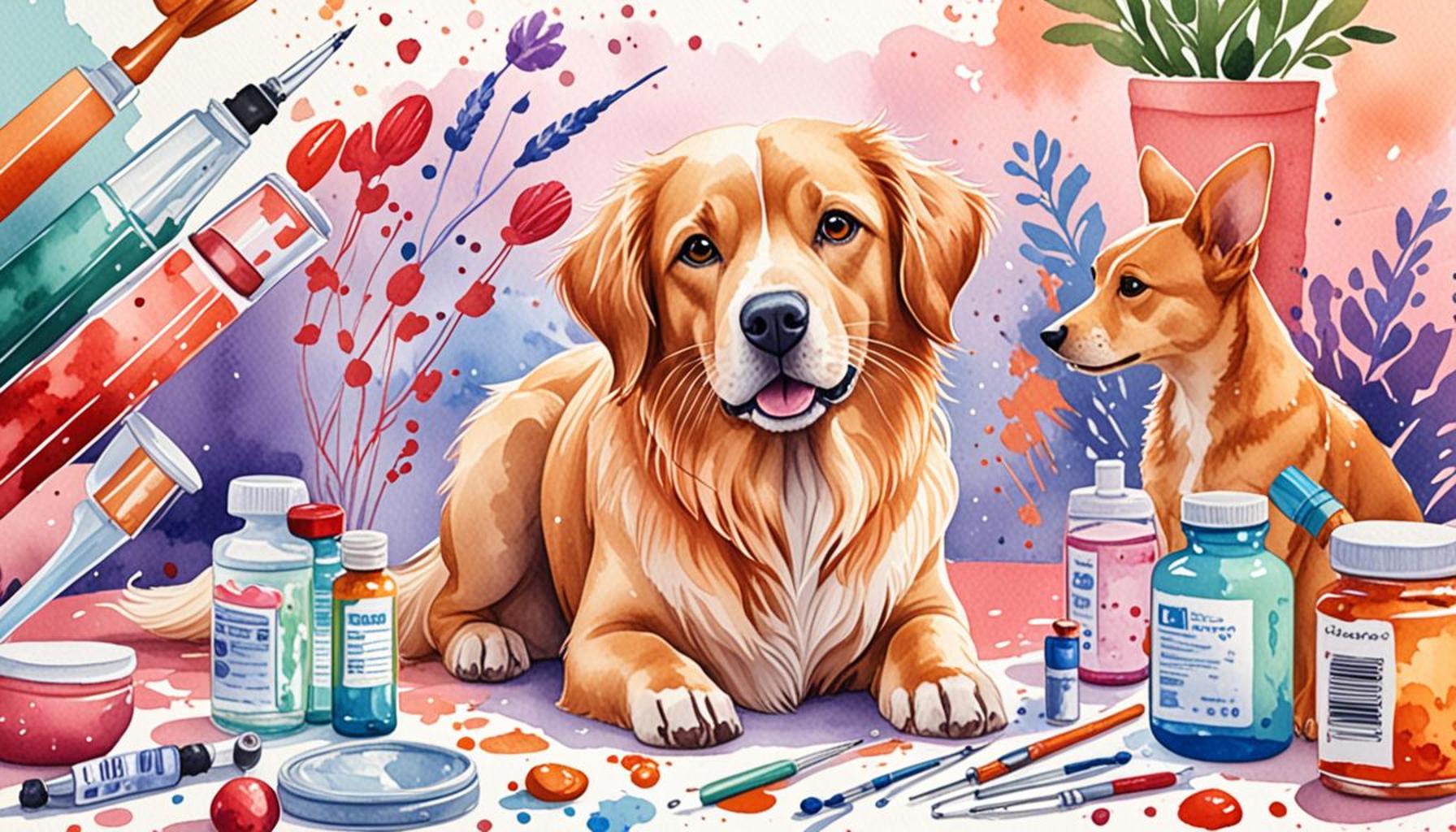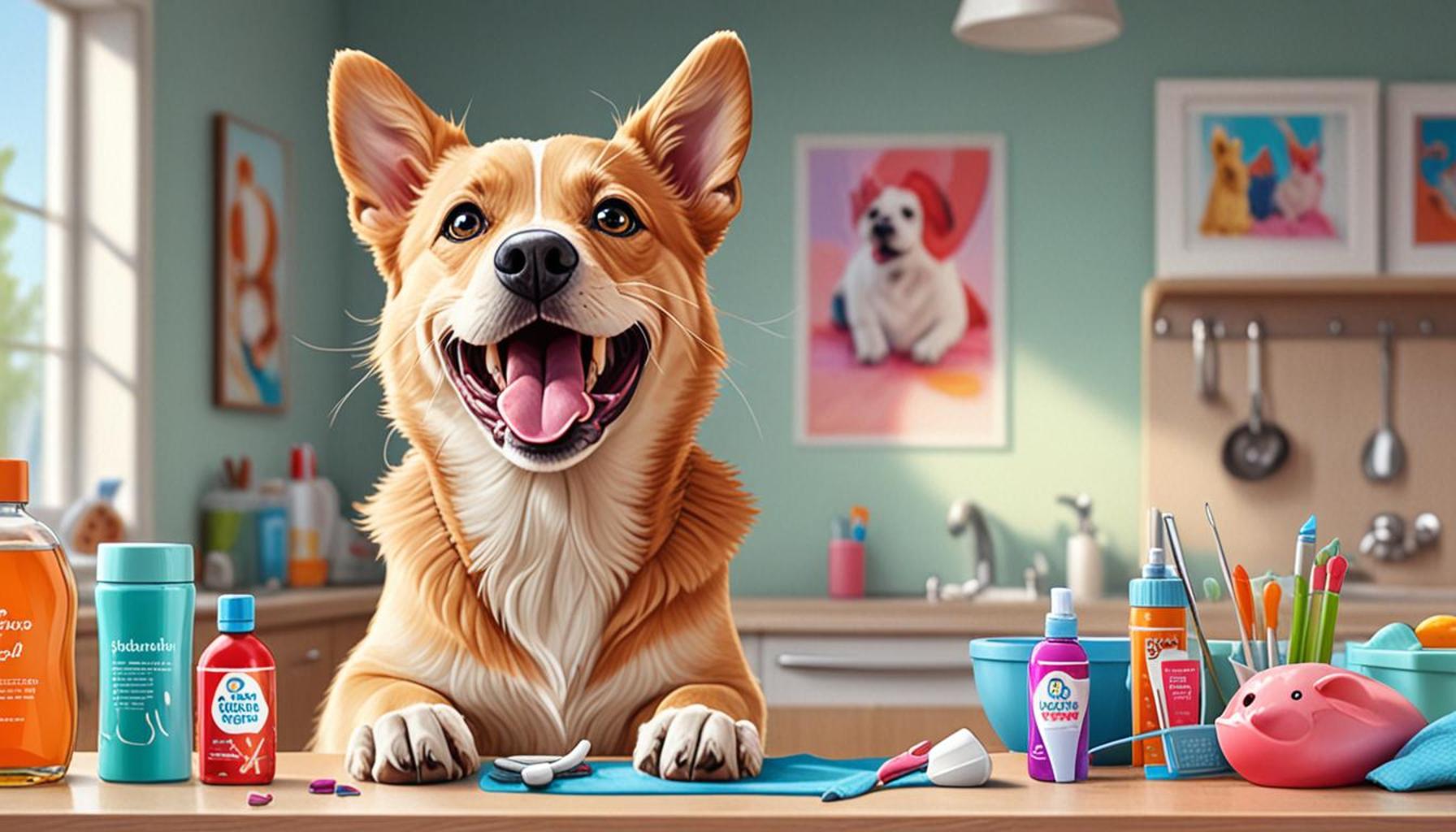How regular vaccination contributes to the long-term health of pets

The Vital Role of Vaccination
Pet owners often prioritize the love and care their furry companions receive, but one crucial aspect of their health is frequently overlooked: regular vaccinations. Vaccinations serve as a protective shield against numerous diseases that can threaten your pet’s life and well-being. It is essential to recognize that vaccinations do not just benefit individual pets but also contribute to the broader health of pet populations in the community.
Understanding the significance of regular vaccinations is key to ensuring your pet’s long-term health. Here are several compelling benefits that vaccinations provide:
- Prevention of serious diseases: Vaccines play a critical role in safeguarding pets against harmful and potentially fatal diseases. For instance, rabies, a viral disease that can be transmitted to humans, is preventable through a safe and effective vaccine. Other serious conditions, such as parvovirus—a highly contagious virus affecting puppies and unvaccinated dogs—and distemper, which can lead to severe respiratory and neurological issues, can be effectively combated with vaccinations.
- Enhanced immunity: Regular shots help boost your pet’s immune system, preparing it to fight off infections more effectively. Vaccination stimulates the production of antibodies, enabling your pet’s body to recognize and battle pathogens in case of exposure. For example, puppies typically receive a series of vaccinations during their first few months that protects them while their immune systems develop.
- Lowered veterinary costs: By preventing illnesses, vaccines can reduce the need for expensive treatments later. For instance, treating an infected dog with parvovirus may cost upwards of $1,000, while the cost of vaccination can be a fraction of that. Investing in vaccines now can save pet owners a significant amount of money in the future and lead to better health outcomes for their pets.
In the United States, responsible pet ownership is synonymous with keeping up with vaccination schedules. Veterinarians recommend a series of vaccines based on your pet’s age, lifestyle, and exposure risks. For example, outdoor dogs may require additional vaccines against Lyme disease, while indoor cats might need less. This means staying informed about local health risks, as environmental factors can also dictate vaccine needs.
As you delve into the world of pet health, it’s crucial to understand not just the immediate benefits of vaccinations, but also how they contribute to the longevity and quality of life for your beloved pets. Vaccines often lead to longer, healthier lives, as they provide immunity against diseases that were once common and deadly. Keeping your pets vaccinated isn’t just a routine; it’s a thoughtful investment in their future and enhances the social responsibility of pet owners to protect community health.
Ultimately, the discussion around vaccination should not end at the veterinary office. It extends to engaging with fellow pet owners and educating oneself about new vaccines and emerging diseases. The health of your pet and the overall pet community can be significantly enhanced by staying proactive through vaccination. Make sure to schedule regular check-ups and discuss vaccination plans with your veterinarian to tailor an effective health strategy for your furry friends.

DON’T MISS: Click here for essential tips on preparing your home for a new pet
The Lifesaving Impact of Vaccines
Vaccines are far more than just a standard procedure in the veterinary world; they are a cornerstone of responsible pet care that ensures your beloved companions enjoy a healthy and fulfilling life. Many pet owners may not fully grasp how even a single vaccine can safeguard against numerous diseases, but their impact reverberates through every aspect of a pet’s long-term health. Comprehensive vaccination schedules not only protect against immediate health threats but also strengthen a pet’s overall resilience to illnesses as they age.
One of the most compelling reasons to prioritize vaccination for pets is the protection against contagious diseases. Common illnesses such as kennel cough in dogs and feline leukemia in cats can spread rapidly through communities, posing risks to unvaccinated pets. These contagions often lead to severe health complications, and in some cases, they can be fatal. Vaccines provide a much-needed layer of defense, reducing the likelihood of outbreaks that could compromise your pet’s health and the health of others.
Moreover, vaccinations enable a pet’s immune system to develop in a way that equips it to fend off potential threats. This process occurs as the body is exposed to a small, harmless form of the disease, prompting the immune system to produce antibodies. By establishing this ‘memory’ of the pathogen, vaccines allow your pet to respond rapidly should a real infection occur. Here are a few key benefits tied to the long-term health of pets through vaccinations:
- Reduction of disease prevalence: Vaccines contribute to herd immunity, which decreases the overall incidence of diseases within the pet population. This helps protect even those animals that are not vaccinated due to health issues.
- Long-term health protection: By ensuring that pets receive their vaccinations on schedule, pet owners can effectively minimize the risk of late-stage, chronic illnesses that often emerge from vaccine-preventable conditions. For instance, heartworm disease, which can have drastic health ramifications, is preventable through vaccines and early treatment.
- Educational opportunities: Regular veterinary visits for vaccinations also present the chance for pet owners to acquire valuable health information. These appointments allow for discussions regarding nutrition, behavior, and preventive care that further contribute to the longevity and well-being of pets.
In a country where pet ownership is at an all-time high, it is imperative to understand not only the necessity of vaccines but also how they relate to the wellbeing of the pet population as a whole. Vaccination programs have been remarkably successful, leading to a dramatic decline in instances of diseases such as distemper and parvovirus. As a pet owner, engaging with these preventive measures is not merely a personal obligation; it becomes a communal responsibility to bolster pet health across neighborhoods and cities.
In reviewing the impact of regular vaccinations, it is crucial to not only appreciate their role in immediate health but also their influence on defining the quality of life for pets in the long run. Thus, making vaccination an integral part of pet care transforms into a profound commitment to safeguarding a pet’s health for years to come.
Understanding the role of vaccinations in maintaining the long-term health of pets is crucial for all pet owners. Regular vaccinations serve as a primary defense against a plethora of infectious diseases and help to ensure that our furry companions lead a healthy and vibrant life. By adhering to recommended vaccination schedules, pet owners can provide their pets with the immunity necessary to combat common ailments that can ravage their health.
One of the most significant advantages of regular vaccinations is the prevention of disease outbreaks. Vaccines stimulate the immune system to recognize and combat specific pathogens, reducing the likelihood of pets contracting illnesses such as rabies, parvovirus, or distemper. This not only protects individual pets but also contributes to the broader health of the community by establishing herd immunity. When a significant number of pets are vaccinated, it significantly lowers the incidence of disease transmission, thus providing safety for those that cannot be vaccinated due to medical reasons.
Furthermore, regular vaccinations can lead to early detection of health issues. During vaccination appointments, veterinarians conduct thorough health assessments. These check-ups allow for early identification of underlying health problems, such as dental issues or obesity, that might otherwise go unnoticed. The proactive approach to health care fosters a relationship between pet owners and veterinarians, emphasizing a partnership in ensuring the pet’s long-term well-being.
| Advantage | Description |
|---|---|
| Disease Prevention | Vaccinations protect pets from serious diseases, enhancing their overall lifespan. |
| Community Health | Higher vaccination rates among pets reduce the risk of outbreaks, benefiting both pets and humans. |
Regular vaccinations not only safeguard pets but also ensure peace of mind for pet owners, knowing they are making an informed choice for their beloved animals. It’s vital for every pet parent to consult with their veterinarian about an appropriate vaccination schedule tailored to their pet’s needs. This proactive health measure is one that reaps significant long-term rewards.
LEARN MORE: Click here to discover how to help your pets
Building a Healthier Future for Pets
Beyond their immediate protective effects, regular vaccinations create a robust foundation for a pet’s long-term health. One of the most staggering statistics comes from the American Veterinary Medical Association (AVMA), which reports that annual vaccination can decrease the likelihood of a pet contracting serious diseases by as much as 80% to 90%. This substantial reduction directly correlates with a pet’s longevity and quality of life, emphasizing how proactive health measures lead to fewer hospital visits and better overall outcomes.
The impact of vaccinations is not limited to disease avoidance alone; they are also instrumental in managing the healthcare costs associated with unexpected health emergencies. Treating infectious diseases can put a significant financial strain on pet owners, often costing hundreds to thousands of dollars. In contrast, investing in vaccinations and routine health check-ups may seem like a small expense, yet it pays dividends by preventing severe, costly health issues down the line. For example, diseases like parvovirus can result in hospitalization and intensive care; however, vaccinations can completely sidestep these expenses.
The role of vaccines in promoting healthy lifestyles also cannot be overlooked. Regular veterinary visits for vaccinations expose pets to ongoing monitoring for their health. Veterinarians are not only able to track vaccination schedules but can also identify early signs of other health problems such as dental disease or obesity. Early detection typically means simpler, cheaper treatments—making routine vaccinations an essential part of comprehensive preventive care.
- Improved Quality of Life: A pet that is less susceptible to serious diseases lives a more active and fulfilling life. Vaccines help ensure that pets can enjoy the activities they love, whether it involves playing fetch in the park or chasing after a laser pointer.
- Travel Safety: For pet owners who travel with their furry companions, being up-to-date on vaccinations is often a requirement. Many boarding facilities and airlines will require proof of vaccinations to ensure the safety of all animals involved. This means that not only is your pet protected, but it also allows for greater freedom in travel.
- Community Health: Vaccination isn’t just an individual benefit; it has sweeping implications for community health. By vaccinating pets, owners actively contribute to reducing the spread of zoonotic diseases—those that can be transmitted from animals to humans. Outbreaks of rabies and leptospirosis can occur in certain geographical areas, and vaccines are vital in preventing such public health crises.
As research continues to uncover the systemic links between vaccinations and overall health, it becomes increasingly clear that the relationship is multifaceted and deeply intertwined. For instance, studies show that pets receiving regular vaccinations tend to exhibit fewer behavioral problems and improved well-being. This suggests that pets who are free from disease are often less stressed and more sociable, leading to a more harmonious environment for both pets and their human families.
Ultimately, integrating vaccination into your pet care routine fosters a lifetime commitment to health and well-being. It is not merely a box to check off but a vital practice that enriches your pet’s quality of life and affords them the best chance to achieve their full potential, both physically and emotionally.
DISCOVER MORE: Click here to dive deeper
Conclusion: A Lifelong Commitment to Pet Health
In conclusion, the significance of regular vaccinations in promoting the long-term health of pets cannot be overstated. Vaccinations not only provide critical protection against a spectrum of serious diseases but also contribute significantly to a pet’s well-being, longevity, and quality of life. As highlighted by the American Veterinary Medical Association, the astounding 80% to 90% decrease in disease likelihood due to vaccinations speaks volumes about their effectiveness in fostering healthier lifestyles.
Moreover, by investing in vaccinations, pet owners can mitigate potential healthcare costs associated with treating infectious diseases, which can often result in financial burdens. This proactive approach allows veterinarians to monitor and address health issues early on, leading to simpler and less expensive solutions. Additionally, the increased freedom for pets to engage in travel and social activities, along with the wider community health benefits from preventing zoonotic diseases, exemplifies that vaccinations are a cornerstone of responsible pet ownership.
As we continue to understand the interconnectedness between vaccinations and overall pet health, it becomes ever clearer that this simple yet profound practice is essential. For those committed to providing their pets with the best chance for a happy and fulfilling life, regular vaccinations should be viewed as a foundational component of their healthcare regimen. By prioritizing vaccinations, pet owners are not just securing their pets’ immediate health; they are investing in a happier, longer, and more vibrant future together.


